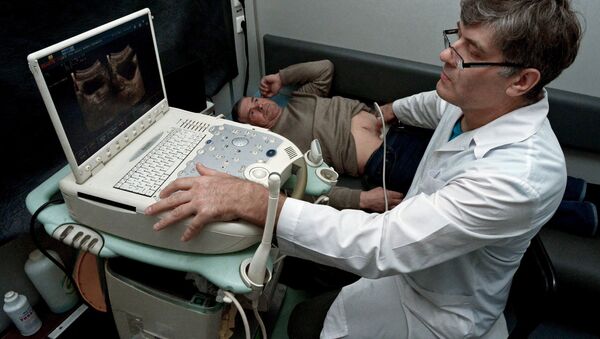To clarify the link between gut microbiota and the onset of disease, the researchers transmitted bacteria from both sick and healthy mice to their germ-free peers. As a result, mice that received "diseased" microbiota developed more beta-amyloid plaques in the brain than those that received "healthy" microflora.
"Our work is unique because we were able to show a direct causal link between gut bacteria and Alzheimer's disease. It is particularly striking that the mice that completely lacked intestinal bacteria developed much less plaque in the brain," Frida Fåk Hållenius from the Centre for Preventive Food Research said in a statement by Lund University.
"We see it as a major breakthrough because we previously were only able to provide symptom-relieving antiretroviral drugs," Frida Fåk Hållenius said.
The groundbreaking research is the result of an international collaboration between Associate Professor Frida Fåk Hållenius and doctoral student Nittaya Marungruang (both from the Centre for Preventive Food Research at Lund University), and a research team at the Swiss Federal Institute of Technology in Lausanne. The partnership also received help from fellow researchers from Germany and Belgium together with an EU grant of 50 million SEK ($5.7mln).
In the future, the research team intends to further study the role of bacteria in the development of Alzheimer's disease and test new types of preventive and therapeutic strategies based on the modulation of gut microbiota through diet and new types of probiotics.
Alzheimer's disease is a poorly understood chronic neurodegenerative disease that progresses slowly and affects millions of people worldwide. In developed countries, Alzheimer's is one of the most costly diseases, with no existing treatment to stop or reverse its progression.
In Sweden alone, there are 160,000 Alzheimer's sufferers in a nation of 10 million. According to the NGO Alzheimer Sweden, the social cost of Alzheimer's amounted to 63 billion SEK ($7bln) in 2012, making the disease about as costly as cancer, cardiovascular diseases and stroke combined.
Never miss a story again — sign up to our Telegram channel and we'll keep you up to speed!





